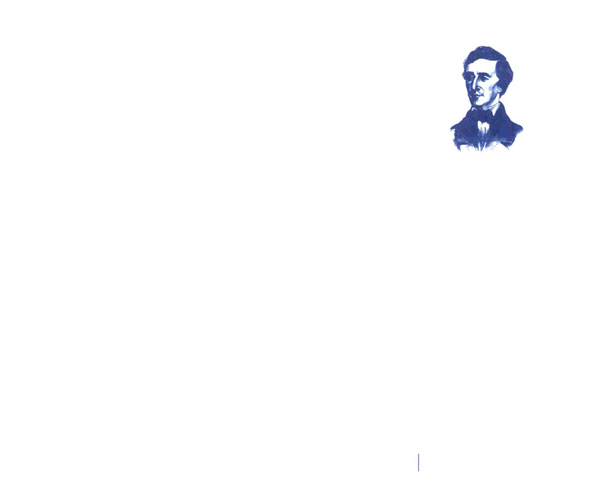
08
THOREAU LAYS THE FOUNDATION
FOR KING AND GANDHI
FOR KING AND GANDHI
Under a government which imprisons any
unjustly, the true place for a just man is in prison.
unjustly, the true place for a just man is in prison.
— Henry David Thoreau (1817-1862)
Mention the name Thoreau and you're bound to hear a reference to his 1854 book, Walden, and
its role in the earliest days of environmental awareness. Like many of the folks in this book,
however, the more radical aspects of his lifework have, in many cases, been erased from his
standard bio. Nonetheless, Thoreau's work in the area of civil disobedience lives on in the efforts
of Gandhi, King, and the many who joined these men in their struggles.
In 1849, Thoreau wrote On the Duty of Civil Disobedience in response to the war of conquest
being waged by his country, the Mexican-American War. It was not his only form of anti-war
protest. “The war had barely begun, the summer of 1846, when… Thoreau, who lived in Concord,
Massachusetts, refused to pay his poll tax, denouncing the Mexican War,” says Zinn. “He was put
in jail and spent one night there.”
Against Thoreau's wishes (and behind his back), his friends paid the tax and secured his freedom.
Legend has it that when fellow writer Ralph Waldo Emerson visited Thoreau in jail, he asked:
“Henry, what are you doing in there?” To which Thoreau is said to have replied: “Ralph, what are
you doing out there?”
its role in the earliest days of environmental awareness. Like many of the folks in this book,
however, the more radical aspects of his lifework have, in many cases, been erased from his
standard bio. Nonetheless, Thoreau's work in the area of civil disobedience lives on in the efforts
of Gandhi, King, and the many who joined these men in their struggles.
In 1849, Thoreau wrote On the Duty of Civil Disobedience in response to the war of conquest
being waged by his country, the Mexican-American War. It was not his only form of anti-war
protest. “The war had barely begun, the summer of 1846, when… Thoreau, who lived in Concord,
Massachusetts, refused to pay his poll tax, denouncing the Mexican War,” says Zinn. “He was put
in jail and spent one night there.”
Against Thoreau's wishes (and behind his back), his friends paid the tax and secured his freedom.
Legend has it that when fellow writer Ralph Waldo Emerson visited Thoreau in jail, he asked:
“Henry, what are you doing in there?” To which Thoreau is said to have replied: “Ralph, what are
you doing out there?”
33
… YOU'RE NOT
SUPPOSED TO KNOW
SUPPOSED TO KNOW